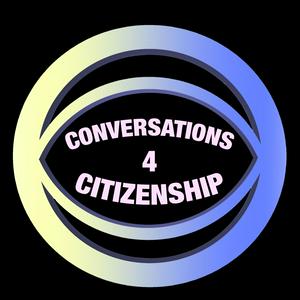Episode11_Functional Coexistence and Mediative Practice: Sustaining Peace Amidst Global Conflicts and Perspectives from Prof. Tatsushi Arai
In the last episode of season 3, Dr. Tatsushi Arai, an associate professor in peace and conflict studies at Kent State University, joins the Conversations4Citizenship podcast to discuss his extensive work in conflict resolution, focusing on the Asia Pacific region. He recounts his experiences, including a pivotal visit to Hiroshima and his time in Rwanda post-genocide, which shaped his career in peacebuilding. Dr. Arai explores the complexities of resolving conflicts in Asia Pacific due to its religious diversity and modern identity constructs. He advocates for peacebuilding education that fosters equity, harmony, and conflict resolution skills through dialog and experiential learning. Particularly, he presented innovative methodologies like "Walk-Through History," which fosters empathy by exploring diverse historical narratives, as seen in his work on Taiwan-China relations.Highlighting projects like the Ubuntu Center for Peace in Rwanda, he underscores the role of local cultural practices in healing and reconciliation. Dr. Arai also examines how digital technology, particularly AI, influences global peace efforts by enhancing data analysis and connectivity but also warns of its potential dangers.Additionally, he emphasized dialogue and experiential learning as core principles of peace education. Dr. Arai's ongoing research includes theories of functional coexistence for sustained negative peace and mediated practices to address conflicts lacking traditional mediation structures.This episode is hosted by Dr. Stella Cheong. Please subscribe to the podcast through Apple, Google, Spotify, or Amazon Music. You may also follow @c4c_ed on Twitter. We look forward to hearing your feedback. If you would like to explore participating in our podcast and submit your blog post to the C4C, do not hesitate to reach out through the online participation form or email us at
[email protected] Reading ListArai, T. and M. Tadevosyan, eds. forthcoming 2025. Functional Coexistence in Socio-political Conflict: Enabling Social Change Across Decades. London: Routledge. (Video abstract)Arai, T. 2023. Engaging Conflict History and Memory Across the Taiwan Strait: A Longitudinal Analysis of the Conflict Timelines from Interactive Conflict Resolution (ICR) Dialogues. Negotiation Journal.Arai, T. 2022. Functional Coexistence in Intractable Conflict: A Decades-Long View of Conflict Intervention. Peace and Change 47: 1-34.Arai, T and J.B. Niyonzima. 2019. Learning Together to Heal: Toward an Integrated Practice of Transpersonal Psychology, Experiential Learning, and Neuroscience for Collective Healing. Peace and Conflict Studies 26 (2).
Contact Conversations4citizenshipTweet us @c4c_ed and @stellarcheongEmail us at
[email protected] us on WhatsApp : +82 1098421801Submit your work us at http://www.conversations4citizenship.comYou can now follow the Conversations4Citizenship on Bluesky @c4cpodcast.bsky.socialThanks for listening and keeping Conversations4Citizenship podcasting!

